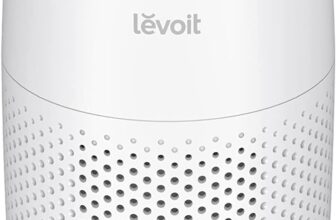Dyson air purifier -18% Discount

Dyson air purifier -18% Discount

What is a Dyson air purifier, and how does it work?
A Dyson air purifier is a device designed to improve indoor air quality by removing particles, allergens, and pollutants from the air. It works by drawing in air through a series of filters, including HEPA and activated carbon filters, to capture and trap particles, dust, pollen, and odors. The purified air is then circulated back into the room.
What is HEPA filtration?
HEPA stands for High-Efficiency Particulate Air. HEPA filters are designed to capture particles as small as 0.3 microns in size, including dust, pollen, pet dander, and some bacteria. They are highly effective at improving air quality by removing these airborne contaminants.
Do Dyson air purifiers remove odors and chemicals?
Yes, Dyson air purifiers with activated carbon filters are capable of removing odors and some volatile organic compounds (VOCs) from the air. The activated carbon helps absorb and neutralize these gases and odors.
How often do I need to replace the filters?
Filter replacement frequency varies depending on the model and usage. Typically, HEPA filters should be replaced every 6 to 12 months, and activated carbon filters may need replacement every 6 to 9 months. It’s important to follow the manufacturer’s recommendations for optimal performance.
Can I control Dyson air purifiers remotely?
Many Dyson air purifier models come with smart features and mobile app connectivity, allowing you to control and monitor the device remotely. You can adjust settings, monitor air quality, and even schedule purification cycles using the app.
Are Dyson air purifiers noisy?
Dyson air purifier are designed to be relatively quiet, especially compared to traditional fans. However, noise levels can vary depending on the fan speed and model. Some users may find the noise level at higher fan speeds to be noticeable.
What is the coverage area of Dyson air purifiers?
The coverage area of Dyson air purifiers varies by model. Dyson provides information about the recommended room size for each model, so it’s important to choose a model that suits the size of the room you plan to use it in.
Do Dyson air purifiers use a lot of energy?
Energy consumption can vary depending on the model and settings. Dyson air purifiers with additional features and higher fan speeds may consume more energy. However, they are generally designed to be energy-efficient.
Can Dyson air purifiers help with allergies and respiratory issues?
Yes, Dyson air purifiers with HEPA filters can be effective in reducing airborne allergens such as dust, pollen, and pet dander, which can help alleviate allergy symptoms. They can also help improve indoor air quality, which can be beneficial for individuals with respiratory issues.
Are Dyson air purifiers worth the cost?
The value of a Dyson air purifier depends on your specific needs and preferences. While they may be more expensive upfront, their advanced technology, efficient filtration, and smart features can make them a worthwhile investment for those seeking improved indoor air quality.




